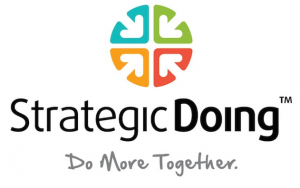By Aniko Drlik-Muehleck and Mike Hibbard
For over a year, the CSC has been partnering with the Greater Eastern Oregon Development Corporation (GEODC) and Northeast Oregon Economic Development District (NEOEDD) to identify ways to strengthen Eastern Oregon’s New Natural Resource Economy (NNRE). The NNRE is a complement to conventional natural resource and agriculture enterprises. NNRE businesses (which are usually very small – five employees or less) use natural resources in innovative ways to create new products such as biomass and lumber from juniper and tap into new markets such as farm-to-table agriculture and ecotourism. These new products and markets provide new sources of jobs and capital, especially for rural communities.
After interviewing and surveying NNRE businesses and economic development specialists across Eastern Oregon, the project team is now releasing a report documenting issues facing NNRE businesses and opportunities to better support these businesses. See the final report (short version and full version) below and learn more about the New Natural Resource Economy! These results will also be shared and discussed during a series of workshops in Eastern Oregon this September.
[embeddoc url=”https://blogs.uoregon.edu/cscenter/files/2017/08/NNRE-Short-Report_Final-2e2q5wy.pdf” download=”all” viewer=”google” ]
[embeddoc url=”https://blogs.uoregon.edu/cscenter/files/2017/08/NNRE-Final-Report_Final-1afr21i.pdf” download=”all” viewer=”google” ]
It is important to note that the NNRE is not unique to Eastern Oregon. It is an under-recognized but common component of many rural economies that are tied to natural resources. As such, we encourage anyone working in economic development or natural resources in rural Oregon and beyond to take a look at our findings and consider ways to support your local NNRE enterprises.
Special thanks to the Ford Family Foundation, the Meyer Memorial Trust, and the Oregon Community Foundation for funding this project.
